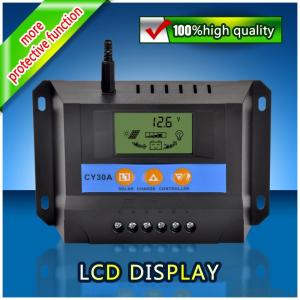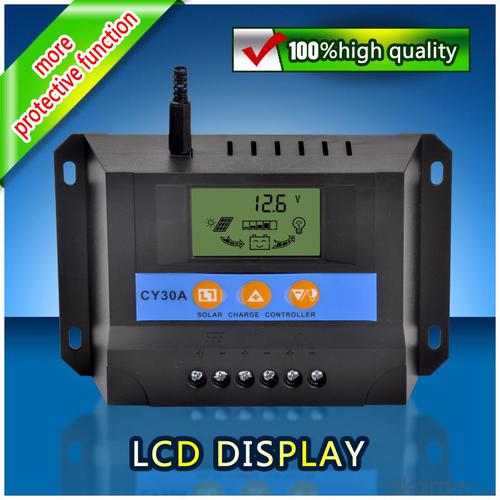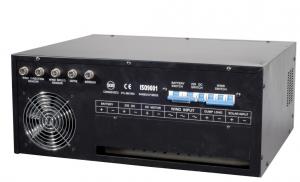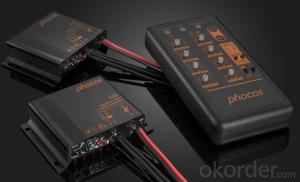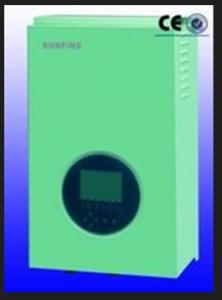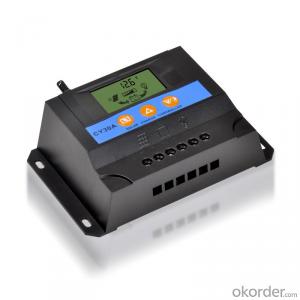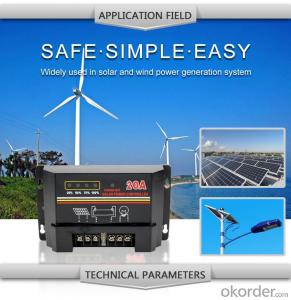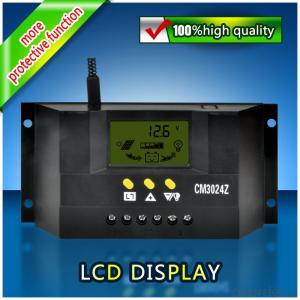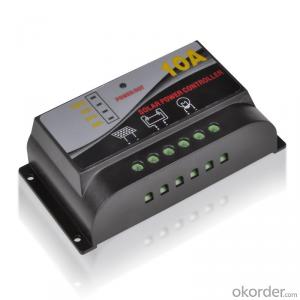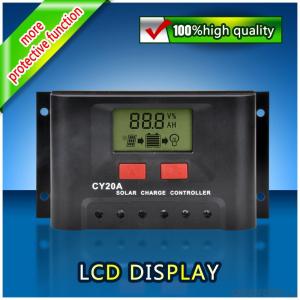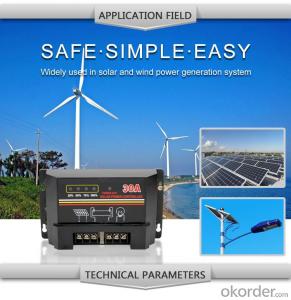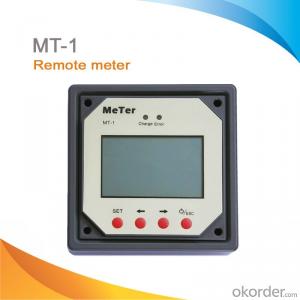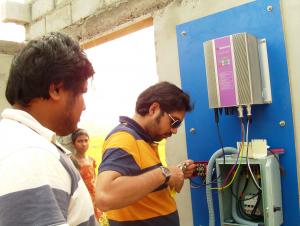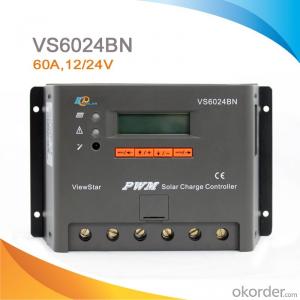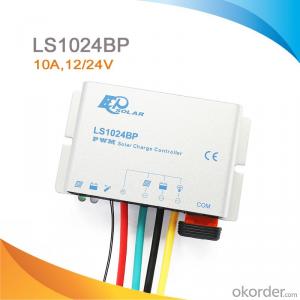Caleffi Solar Controllers - Solar LCD Controller CY30A, Hot-Selling, Best Price
- Loading Port:
- China main port
- Payment Terms:
- TT or LC
- Min Order Qty:
- 1 unit
- Supply Capability:
- 10000 unit/month
OKorder Service Pledge
OKorder Financial Service
You Might Also Like
Product Introduction
Solar controller is control device which can control solar panel and transform solar energy into electricity then store to the battery bank. Solar controller is the most important part in offgrid system, whose performance has much effect on life expectancy and operation of the whole system, especially the battery expectancy.
Application Areas
Standalone Photovoltaic power station
Standalone Domestic household photovoltaic power system
Mobil communication base stations, expressway and other non-residential regions.
Coastal islands, remote mountainous, border posts for regions shortage of or without electricity.
Government demonstration projects, landscape lighting project etc.
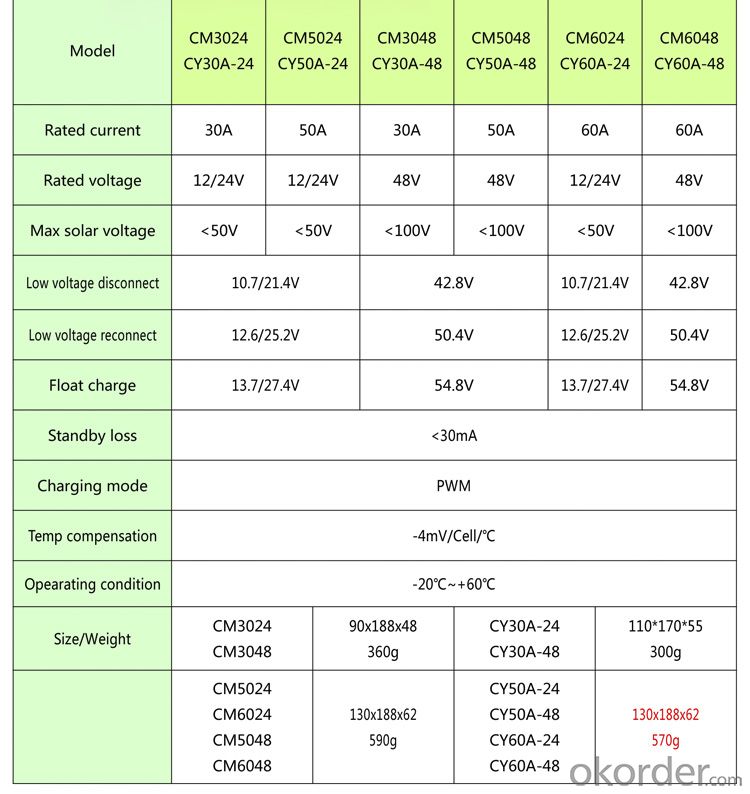
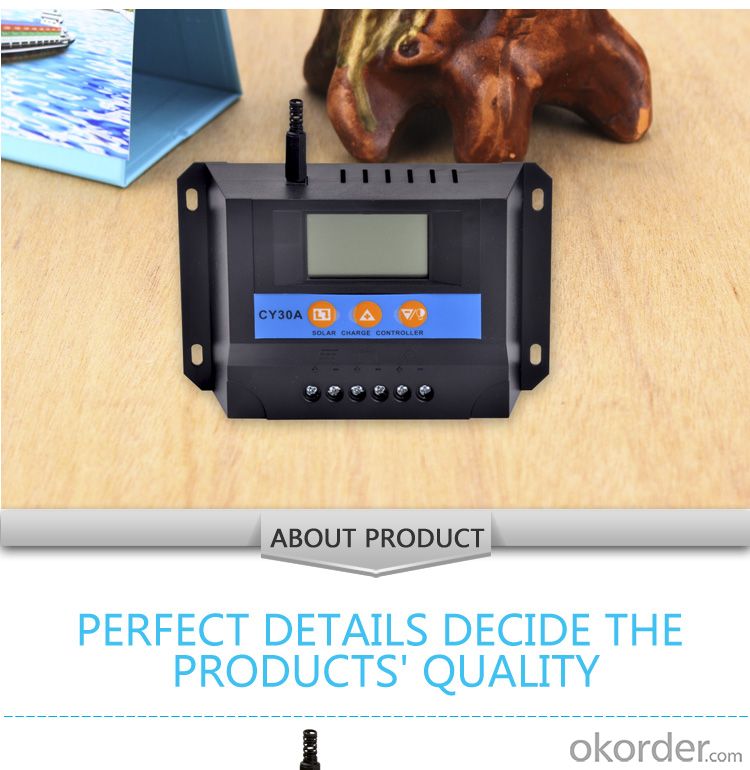
- Q: Can a solar controller be used with a solar-powered warehouse or distribution center?
- Yes, a solar controller can definitely be used with a solar-powered warehouse or distribution center. A solar controller, also known as a charge controller, is an essential component in a solar power system that regulates the flow of electricity from the solar panels to the battery bank. By ensuring that the batteries are charged efficiently and preventing overcharging or damage, a solar controller helps optimize the performance and longevity of the solar power system in a warehouse or distribution center.
- Q: What is the equalization charging mode of a solar controller?
- The equalization charging mode of a solar controller is a process where the controller intentionally overcharges the batteries to balance the voltage levels of individual battery cells. This helps to prevent stratification, a condition where certain cells in the battery pack have a higher voltage than others, which can lead to reduced battery capacity and lifespan. By equalizing the charge across all cells, the controller ensures optimal performance and longevity of the batteries.
- Q: How do you properly maintain a solar controller?
- Proper maintenance of a solar controller involves a few key steps. Firstly, it is important to regularly inspect the controller for any signs of damage or corrosion. Cleaning the controller's surface with a damp cloth can help remove dirt and debris. Additionally, ensure that the controller's connections are secure and free from any loose or frayed wires. Regularly checking and cleaning the solar panels is also crucial to maintain optimum performance. Finally, it is advisable to refer to the manufacturer's guidelines and recommendations for specific maintenance tasks and intervals.
- Q: How does a solar controller handle variations in solar panel degradation?
- A solar controller handles variations in solar panel degradation by constantly monitoring the power output of the solar panels. It adjusts the charging and discharging parameters to compensate for any decrease in the panel's performance due to degradation, ensuring optimal power conversion and utilization.
- Q: Can a solar controller be used with a solar-powered fish farm?
- Yes, a solar controller can be used with a solar-powered fish farm. A solar controller regulates the charging and discharging of batteries in a solar power system, ensuring optimal performance and protection. In a solar-powered fish farm, the solar controller can be used to manage the solar panels' energy output, ensuring a constant and efficient power supply to the farm's infrastructure, such as pumps, aerators, and monitoring systems.
- Q: Can a solar controller be used with solar panels of different sizes?
- Yes, a solar controller can be used with solar panels of different sizes. A solar controller is responsible for regulating the charge from the solar panels to the battery bank or load, and it does not depend on the size of the solar panels. However, it is important to ensure that the solar controller is compatible with the voltage and current produced by the solar panels. The solar controller should have the appropriate specifications to handle the maximum voltage and current generated by the solar panels, regardless of their size.
- Q: Can a solar controller handle power fluctuations from the utility grid?
- No, a solar controller is not designed to handle power fluctuations from the utility grid. Its primary function is to regulate and control the charging of batteries in a solar power system, ensuring optimal battery performance and longevity. Power fluctuations from the utility grid require specialized equipment such as voltage regulators or surge protectors to handle and protect the solar power system from any potential damage.
- Q: Can a solar controller be used with solar-powered indoor entertainment systems?
- No, a solar controller is not necessary for solar-powered indoor entertainment systems as they do not require the same level of energy management and regulation as outdoor solar systems.
- Q: What is the purpose of the battery over-discharge protection feature on a solar controller?
- The purpose of the battery over-discharge protection feature on a solar controller is to prevent the battery from being discharged beyond a safe level. This feature helps to prolong the battery's lifespan and ensures that it remains in a healthy condition for optimal performance.
- Q: Can a solar controller be used with a battery bank of different capacities?
- Yes, a solar controller can be used with a battery bank of different capacities. The solar controller is responsible for regulating the charging process and protecting the batteries from overcharging or discharging. It can adjust its charging parameters based on the battery bank's capacity, ensuring optimal charging performance regardless of the capacity differences.
Send your message to us
Caleffi Solar Controllers - Solar LCD Controller CY30A, Hot-Selling, Best Price
- Loading Port:
- China main port
- Payment Terms:
- TT or LC
- Min Order Qty:
- 1 unit
- Supply Capability:
- 10000 unit/month
OKorder Service Pledge
OKorder Financial Service
Similar products
Hot products
Hot Searches
Related keywords
